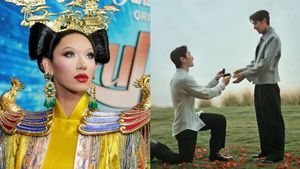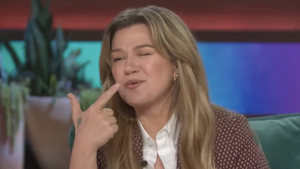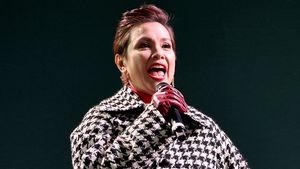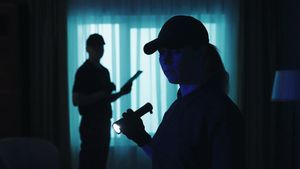A homeless shelter in Anchorage, Alaska, that has a policy of discriminating against transgender people is suing to challenge the city's nondiscrimination ordinance, and it's represented by the anti-LGBTQ Alliance Defending Freedom.
The ADF, which won a qualified victory for anti-marriage equality baker Jack Phillips at the Supreme Court, filed the suit in August, but the news has hit local and national outlets just now. The suit asks the U.S. District Court of Alaska to declare that the trans protections in Anchorage's antidiscrimination law violate the Alaska and U.S. Constitutions.
The shelter at the center of the suit is the Downtown Soup Kitchen, which also offers a shelter for homeless women and is operated by the Hope Center, a Christian nonprofit.
A transgender woman filed a complaint with the Anchorage Equal Rights Commission after she was turned away from the shelter twice in January. "The shelter actually had perfectly plausible reasons for these two refusals," ThinkProgress reports. "On the first occasion, the woman reportedly was drunk -- a violation of the shelter's admissions policy. On the second occasion the following day, she sought admission at a time when the shelter was closed." The commission has yet to rule on her complaint.
But offering those reasons wasn't enough for Hope Center. In March, as Anchorage was conducting a mail-in vote on a measure that would have carved out an anti-trans exception to the nondiscrimination ordinance, an attorney for the group told a local newspaper the shelter would never admit a trans woman, or, as he said, a "biological male," under any circumstances. This led the city to file a complaint of its own against Hope Center, and it is also still pending. (The anti-trans measure, which would have denied trans people access to public restrooms and other single-sex facilities matching their gender identity, was defeated.)
The Hope Center's suit, which names the city and the Equal Rights Commission as defendants, is unusual because the commission has taken no punitive action against the center. "ADF contends that the handling of these two complaints, even though they remain unresolved, somehow demonstrates that the commission is 'targeting' the shelter in an 'effort to force the Hope Center to change its policies anyway,'" ThinkProgress notes.
Hope Center could potentially prevail in the complaints brought against it, given that its reasons for turning away the trans woman in January apply to all clients, and because homeless shelters are exempt from the housing provisions of the nondiscrimination ordinance, ThinkProgress points out. However, it appears to be concerned that the city would consider it a public accommodation, although it claims not to be, and that portion of the nondiscrimination ordinance would apply.
The center claims that the ordinance violates its First Amendment right to freedom of religion, along with other violations of the U.S. and state constitutions. The suit also contends that the presence of trans women in the shelter poses a danger to cisgender women, although it does not use those terms.
"It would not only be dangerous and against common sense, but it would violate the Hope Center's sincerely held religious beliefs to admit biological men into its shelter and allow them to sleep side by side and disrobe next to women, some of whom have been assaulted by men and fear for their safety," the suit says.
The Southern Poverty Law Center, which has designated the ADF a hate group, responded strongly to that assertion. "There is simply no evidence that transgender people are more of a threat to anyone, whether that be in bathrooms, locker rooms, or homeless shelters," David Dinielli, deputy legal director for the SPLC, told Anchorage TV station KTUU. "In fact, we know transgender people are among the most, if not the most likely to be targeted for abuse, sexual abuse and physical abuse."
He also took issue with the suit's terminology. "The use of the phrase biological male or female is both without meaning and offensive," he told the station. "People who are transgender are the gender that they are. And there is a lot of thought that that is a result of their biology."
The American Civil Liberties Union's Alaska affiliate also spoke out against the Hope Center's reasoning. "The ability to believe what you believe and to practice your religion is one of our core fundamental rights," communications director Casey Reynolds told KTUU. "But you have to draw the line at which this is harming other people and society, and that is really what this is about."
The suit does claim the Hope Center allows "biological women who identify as men" into the shelter, but ThinkProgress says this rings hollow, as "the drafted statement it wants to publish dictates that guests 'must be biological females, meaning they were born with, and currently have, only anatomical and genetic characteristics of a woman.'"
"This is just another in ADF's litany of attempts to completely eliminate any protections for LGBTQ people," ThinkProgress concludes. "But this time, the case is not about cakes or flowers, it's about transgender people who have nowhere to go. ... If ADF has its way, it'll be easier for bigots to force trans people onto the street -- and keep them there."
The city is preparing its response to the suit.


















































































